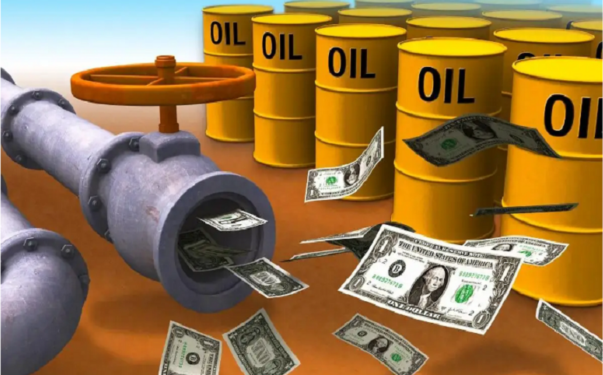Eko DisCo Launches All-In-One Vending Platform to Improve Customer Service
Oil Prices Surge as Middle East Tensions Escalate, Raising Concerns Over Global Supply

Oil prices surged by over a dollar in early trading today, driven by increasing concerns that rising tensions in the Middle East could disrupt crude production, following Iran’s most significant military attack on Israel.
Brent crude rose by $1, or 1.36%, reaching $74.56 per barrel, while U.S. West Texas Intermediate (WTI) crude gained $1.07, or 1.53%, climbing to $70.90 as of 03:30 GMT. On Tuesday, both benchmarks recorded gains exceeding 5% during the trading session.
On Tuesday, oil prices climbed around 3% after Iran launched ballistic missiles at Israel in retaliation for Israeli military actions against Hezbollah, Iran’s ally in Lebanon.
Brent crude rose by $1.86, or 2.6%, closing at $73.56 per barrel, while U.S. West Texas Intermediate (WTI) crude increased by $1.66, or 2.4%, settling at $69.83. Earlier in the session, both benchmarks had spiked by more than 5%.
Sirens echoed across Israel, with explosions reported in Jerusalem and the Jordan Valley, prompting residents to seek refuge in bomb shelters.
Iran’s conflict with Israel
Iran stated that the missile strikes were in retaliation for Israeli attacks on Gaza and Lebanon, along with the recent assassinations of key figures from Hamas, Hezbollah, and Iran’s Islamic Revolutionary Guard Corps (IRGC). The country also issued a stern warning to Israel against retaliatory measures.
Israeli officials have vowed a firm response following Iran’s barrage of ballistic missiles, which targeted key military and security sites within Israel.
Impact on global energy supply
Iran’s direct involvement in the conflict, as a member of OPEC, raises fears of potential disruptions to global oil supply. In August, Iran’s oil production hit a six-year high of 3.7 million barrels per day, representing about 4% of the world’s supply.
OPEC and its allies, known collectively as OPEC+, are due to meet later on Wednesday to assess the market situation, although no policy adjustments are anticipated. From December, OPEC+, which includes Russia, plans to increase production by 180,000 barrels per day (bpd) each month.
South Korean President Yoon Suk-yeol expressed concerns over his country’s energy security amid the escalating Middle East crisis. According to his office, Yoon held meetings with national security and economic advisers on Wednesday, urging a swift but measured response to any potential impacts on South Korea’s energy supplies.
Mixed implications for Nigeria
The rise in oil prices is a positive development for Nigeria’s financial standing, as it signals higher government revenue and a potential boost in its foreign reserves.
However, with the Nigerian National Petroleum Company (NNPC) preparing to fully transition to a cost-reflective petrol pricing system, higher crude prices could lead to an increase in petrol costs, which may hit Nigerians hard, as they are already grappling with record-high petrol prices of over N1,000 per litre in major cities across the country.






